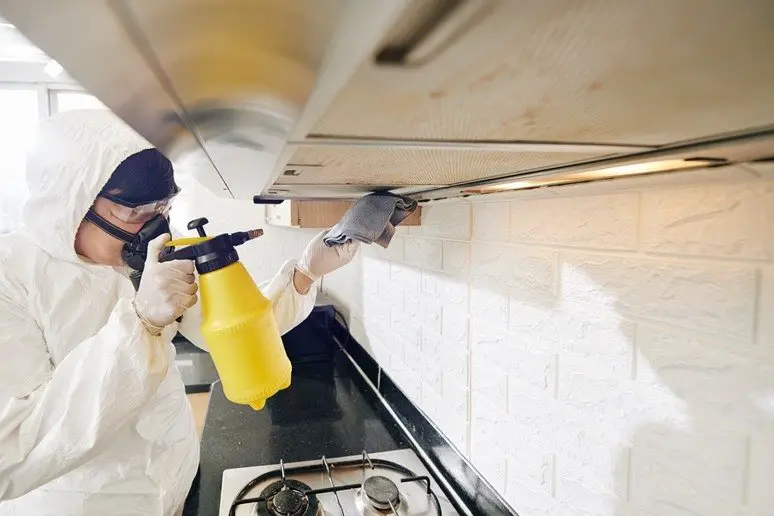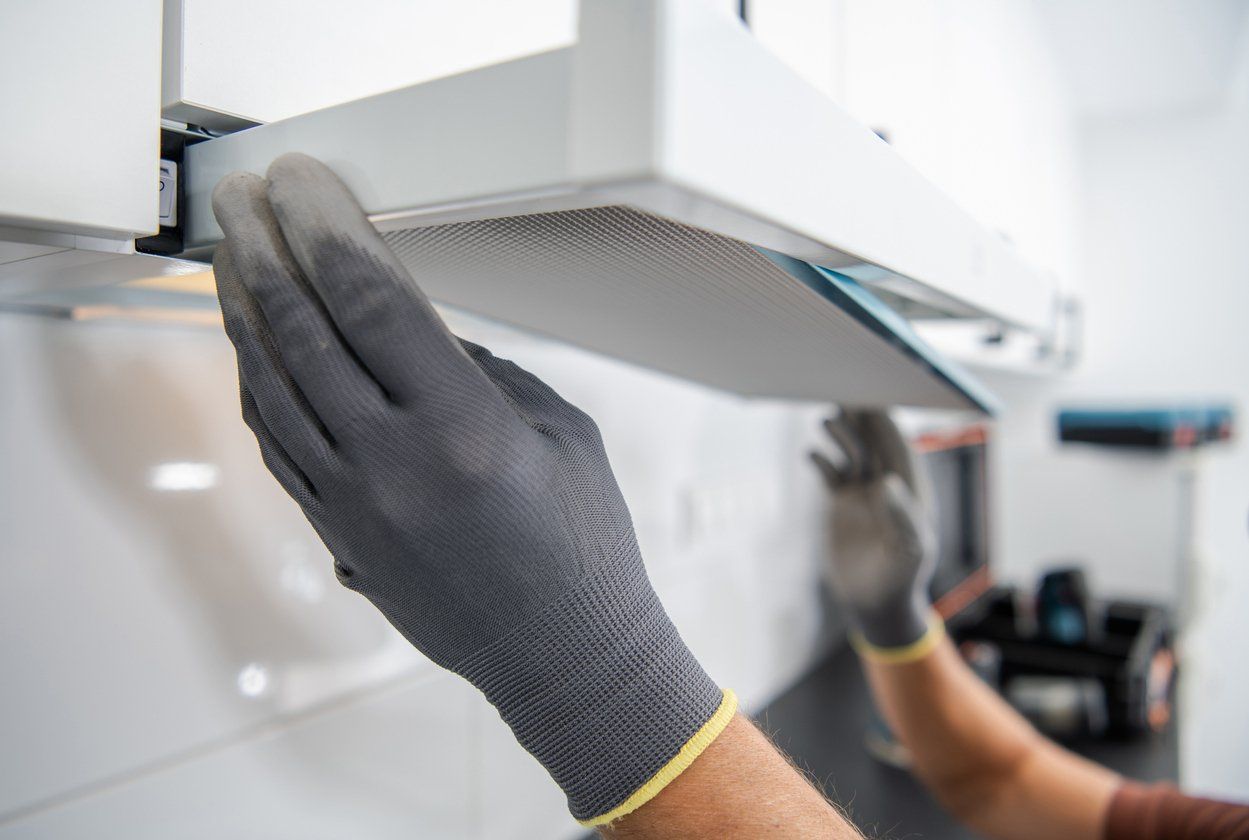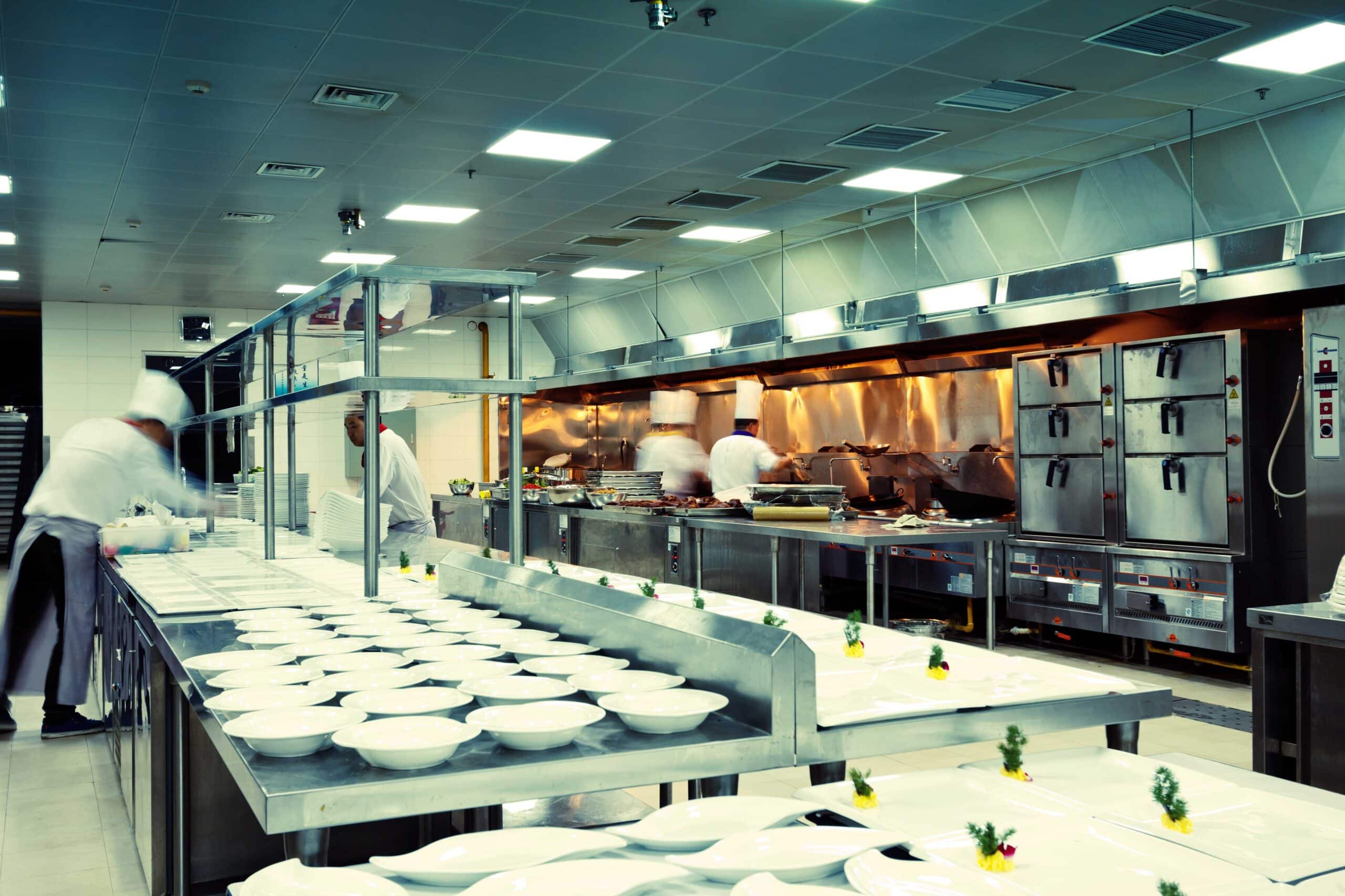Physical Address
304 North Cardinal St.
Dorchester Center, MA 02124

Commercial kitchen hoods should be cleaned regularly. The frequency depends on usage and cooking type.
Regular cleaning ensures safety and efficiency. A commercial kitchen hood plays a crucial role in maintaining a safe and clean environment. It removes grease, smoke, and odors from the kitchen. Over time, grease and debris build up in the hood.
This can lead to fire hazards and reduced air quality. Keeping the hood clean is essential. The cleanliness of your kitchen hood affects the health and safety of your staff and customers. In this blog, we will explore how often you should clean your commercial kitchen hood. We will consider different types of kitchens and their specific needs. This will help you keep your kitchen safe and efficient.

Credit: www.midwestductcleaning.com
Maintaining clean kitchen hoods in a commercial kitchen is crucial. It ensures the safety and health of everyone in the establishment. Dirty kitchen hoods can lead to severe problems, such as fires and poor air quality. Regular cleaning helps in preventing these issues and keeps the kitchen running smoothly.
A clean kitchen hood reduces the risk of fire. Grease and grime build-up in the hood can ignite easily. This can lead to dangerous kitchen fires. Regular cleaning removes these flammable substances. It keeps your kitchen safe from potential fire hazards.
Clean kitchen hoods improve air quality in the kitchen. They remove smoke, steam, and cooking odors. This creates a better working environment for kitchen staff. Good air quality also ensures that food remains uncontaminated. Clean hoods help in maintaining a healthy and pleasant atmosphere.
Maintaining commercial kitchen hoods is crucial for safety and hygiene. Adhering to regulatory requirements ensures compliance with health and fire codes. This section outlines the necessary guidelines.
Health codes mandate regular cleaning of kitchen hoods to prevent contamination. Grease and grime buildup can lead to bacteria growth, risking food safety. Inspections typically require proof of regular maintenance.
Key points:
Fire codes also require frequent cleaning of kitchen hoods. Grease is highly flammable and can cause kitchen fires. Regular cleaning helps reduce this risk.
Essential fire code requirements:
Both health and fire codes stress the importance of maintaining clean kitchen hoods. Stay compliant to ensure a safe and hygienic kitchen environment.
Commercial kitchens must maintain clean hoods for safety and efficiency. The frequency of cleaning depends on various factors. Understanding these factors can help in planning regular maintenance.
The type of food prepared in the kitchen affects how often hoods need cleaning. Greasy foods like fried chicken produce more residue. This means more frequent cleaning is required. Less greasy foods, such as salads, result in less residue. These kitchens may not need cleaning as often.
| Type of Cooking | Cleaning Frequency |
|---|---|
| Fried Foods | Weekly |
| Grilled Foods | Bi-Weekly |
| Baked Goods | Monthly |
The amount of use also determines how often to clean kitchen hoods. Busy kitchens create more smoke and grease. This means more frequent cleaning is necessary.
Busy times of year, like holidays, may require additional cleaning. Regular checks can help determine the best cleaning schedule.
Maintaining a clean commercial kitchen hood is crucial for safety and efficiency. The recommended cleaning schedules vary based on kitchen usage. Below, we explore the cleaning frequency for different types of kitchens.
Kitchens that operate 24/7 or prepare greasy foods need frequent cleaning. Heavy use kitchens should clean their hoods every month. This ensures that grease build-up does not become a fire hazard. Regular cleaning also keeps air quality high and the kitchen environment safe.
Moderate use kitchens, such as those in casual dining restaurants, need less frequent cleaning. For these kitchens, a quarterly cleaning schedule is sufficient. Cleaning every three months prevents excessive grease accumulation. This schedule balances safety and operational efficiency.
A clean commercial kitchen hood is vital for safety and efficiency. Regular cleaning helps prevent fires and ensures proper ventilation. But how do you know when it’s time for a clean? Here are some signs your hood needs cleaning.
One of the first signs is visible grease. Look at the hood and filters. Do you see a thick layer of grease? This build-up indicates that the hood is overdue for cleaning. Grease can clog the filters and reduce airflow. It can also become a fire hazard.
Check for grease on the walls and ceiling near the hood. This is another sign that the hood is not working properly. Grease should be contained within the hood, not spreading to other surfaces.
Another clear sign is unpleasant odors. A clean hood should efficiently remove smoke and cooking smells. If you notice lingering odors, it’s time to clean the hood. These smells can affect the dining experience and may even drive customers away.
Pay attention to any burnt or sour smells. These can be signs that grease and food particles are trapped in the hood. Regular cleaning eliminates these odors and keeps the kitchen smelling fresh.

Credit: www.rti-inc.com
Choosing the right professional cleaning service for your commercial kitchen hoods is crucial. A clean hood ensures a safe and efficient kitchen. But how do you pick the right service? Here are some key factors to consider.
Before hiring a cleaning service, ask these important questions:
Choosing the right professional cleaning service ensures your kitchen hoods are clean and safe. Follow these tips to find a reliable and qualified service provider.
Keeping your commercial kitchen hood clean is crucial. It ensures safety and efficiency. Regular cleaning prevents grease buildup and fire hazards. Below are some DIY cleaning tips to help you maintain a spotless kitchen hood.
Before you start cleaning, gather the necessary tools. Having the right tools makes the job easier and more effective.
Follow these steps to clean your kitchen hood effectively.
By following these steps, you ensure your commercial kitchen hood remains clean and safe. Regular maintenance extends the life of your equipment and keeps your kitchen running smoothly.
A clean kitchen hood is crucial for a safe and efficient commercial kitchen. Grease and grime can build up quickly. This can lead to fire hazards and poor air quality. Regular cleaning ensures the hood performs well and keeps the kitchen environment safe.
Regular inspections are key to maintaining a clean kitchen hood. Inspections help identify grease buildup and other issues. Conduct weekly checks to spot any signs of dirt or damage. Use a flashlight to look at hard-to-see areas. Schedule professional inspections at least twice a year.
Taking preventive measures can reduce the need for frequent deep cleaning. Use high-quality filters to trap grease and particles. Replace or clean these filters monthly. Train staff to clean the hood’s surface daily. This stops grease from accumulating.
Keep a log of cleaning activities. Documenting helps ensure the hood is cleaned on time. Post a cleaning schedule in the kitchen for staff to follow. This promotes accountability and consistency.

Credit: www.doubleclean.ca
Commercial kitchen hoods should be cleaned every three to six months. This depends on the volume of cooking. Regular cleaning ensures safety and efficiency.
Regular hood cleaning prevents grease buildup, which can cause fires. It also ensures proper ventilation, improving air quality. This keeps your kitchen safe and efficient.
Cleaning kitchen hoods reduces fire hazards and improves air quality. It also ensures compliance with health codes and extends equipment lifespan.
Kitchen staff can clean hoods daily for basic maintenance. However, professional cleaning is recommended every few months for thorough cleaning and safety.
Regular cleaning of commercial kitchen hoods is essential. It ensures safety and efficiency. Clean hoods prevent grease build-up. This reduces fire risks. Regular maintenance also extends equipment life. It keeps the kitchen environment healthy. A clean hood improves air quality.
It meets health and safety regulations. Always follow recommended cleaning schedules. Professional cleaning services can help. They ensure thorough and effective cleaning. Keep your kitchen running smoothly. Prioritize regular hood cleaning. It’s a smart investment for any commercial kitchen.